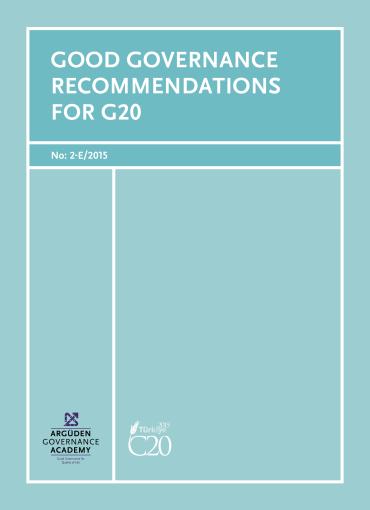Good Governance Recommendations for G20
As the C20’s (Civil Society 20) role is to represent the views of national and international civil society at the G20, it works as a platform to share opinion and advocacy in order to make recommendations to the world leader related to areas such as, development and economic improvement. As Argüden Governance Academy, we provided our views as a member of the C20 Governance Working Group, and we conducted research and reported on stakeholder opinions to gather their perspectives.
As a member of the C20 Governance Working Group, we conducted a study evaluating the place and priorities of the topics discussed in this working group within the agenda of NGOs in Türkiye. In our study, we collected the opinions of Turkish NGOs through a specially designed survey system. We included valid surveys from each NGO, with the surveys being distributed openly to NGOs via social media and email.
The NGOs, who were stakeholders in the study, evaluated their opinions on the topics discussed in the C20 Governance Working Group and included in the survey, taking their own agendas into consideration. The main topics and subcategories addressed in the study are as follows:
Transparency and Anti-Corruption in the Public Sector
- Promoting good governance practices by governments, based on transparency and creating a regulatory environment
- Ensuring that all information held by the government is open and accessible to everyone
- Transparent disclosure of political party donations to the public
- Embracing transparency and openness in public procurement (e-procurement implementation)
- Significantly limiting the practice of immunity granted to politicians and public officials
Participation
- Integrating mechanisms for listening to citizens' voices and regulatory impact assessments as an integral part of public decision-making processes
- Regularly monitoring decision-making processes to prevent corruption
Responsible Business Principles
- Respecting human rights
- Supporting environmental protection and sustainable development
- Respecting workers' rights
- Fighting against corruption
- Encouraging the private sector to take voluntary responsibility in promoting responsible business principles
Other Issues
- Utilizing integrated reporting Implementing an
- Action Plan to reduce tax base erosion and prevent profits from being transferred to tax havens















